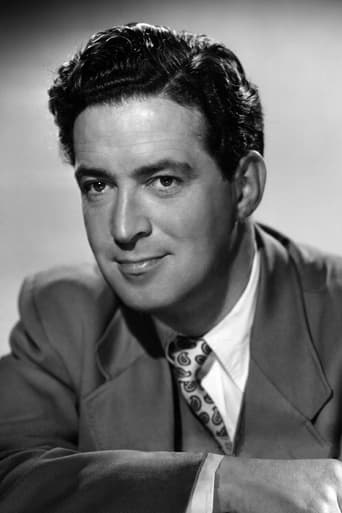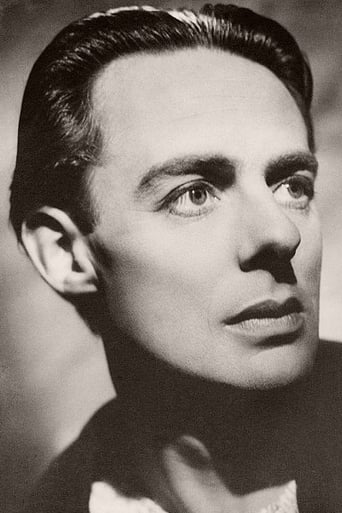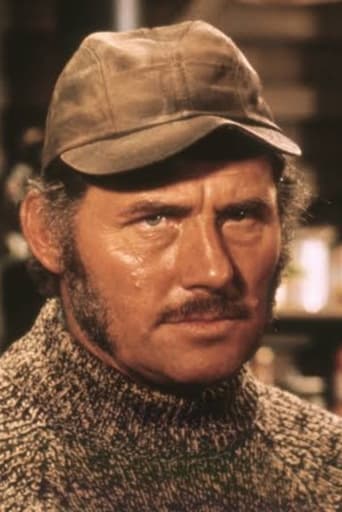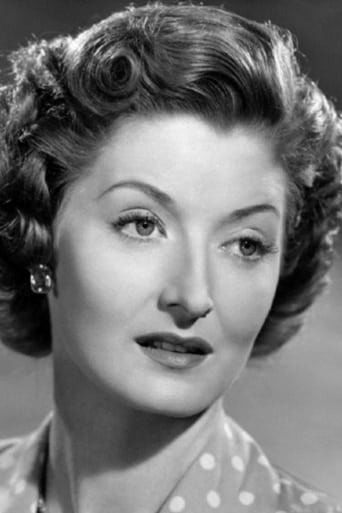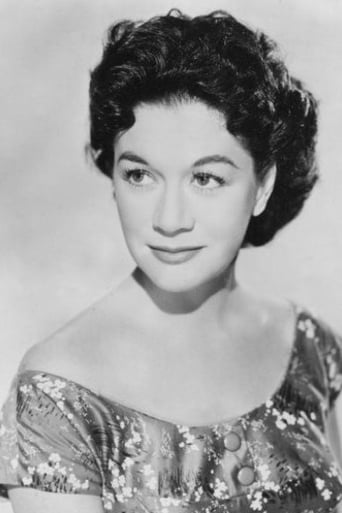Platicsco
Good story, Not enough for a whole film
Pacionsbo
Absolutely Fantastic
Maidexpl
Entertaining from beginning to end, it maintains the spirit of the franchise while establishing it's own seal with a fun cast
Curt
Watching it is like watching the spectacle of a class clown at their best: you laugh at their jokes, instigate their defiance, and "ooooh" when they get in trouble.
JohnHowardReid
Producer: Tom Blakeley. A Blakeley's Films Production. A Mancunian Film Corporation Production, released in the U.S.A. by Governor Films: May 1964. No New York opening. U.K. release through Planet: 23 June 1963. Never theatrically released in Australia. 7,210 feet. 80 minutes. (Available on an excellent Odeon DVD).SYNOPSIS: A kidnap plot goes terribly awry.NOTES: John Gregson was sitting on top of the world in 1953, thanks to "Genevieve: which catapulted him, Kenneth More and Kay Kendall to international stardom. Oddly none of the trio's sudden movie success lasted much beyond the 1950s. Kay Kendall died in 1959, and film producers forsook both Gregson and More, when it seemed the picture- going public had tired of them. More's last big success was in "The Greengage Summer" (1961). Though he did make a few sporadic big screen appearances throughout the 1960s, and 1970s, he concentrated on the stage and TV. His last film role was as King Arthur in "Unidentified Flying Oddball" (1979).Gregson's 60s career was equally as sparse, although, like More, he did score one big critical success, "Live Now Pay Later" (1962). Unlike More's "Greengage Summer", however, Gregson's critical triumph proved so unpopular with the public, the movie's Australian distributor didn't even bother to release it! Gregson was reduced to accepting the lead in "Tomorrow at Ten". Good film, good director, but quite a comedown from the dizzy heights of "Genevieve". Gregson's Australian fans were denied the pleasure of seeing their idol in "Tomorrow at Ten" too, until it turned up on TV. There were to be no more top starring roles for Gregson on the big screen. A couple of cameo parts in "The Longest Day" (1962) and "The Night of the Generals" (1966) and a minor role as a doctor in "Fright" (1971) completed his cinema career.Interestingly, all three of the "Genevieve" trio commenced their progress towards stardom well before that fantastic success. More started acting in movies way back in 1935, when he debuted in "Look Up and Laugh", and appeared in eighteen more films before "Genevieve". Gregson made his debut in "Saraband for Dead Lovers" in 1948, and landed eleven more roles before his vintage car brought him fame and fortune. And Kay Kendall, would you believe, made her initial screen appearance in 1944 in "Fiddlers Three". Fourteen films followed until she suddenly became the "discovery sensation" of 1953.COMMENT: Atmospherically directed low-budget effort, with a cast and production values way beyond most of its quota quickie competitors. The screenplay is literate and concise, sometimes even rather witty, whilst the characters are interestingly defined and the plot riddled with suspenseful elements which the director puts across with maximum impact. Basil Emmott's effective camera-work also rates as a major factor in the film's success.OTHER VIEWS: John Gregson. Born at Liverpool in 1919. Married to Thea Gregory. Entered films in 1948. Pictures include Scott of the Antarctic, Saraband for Dead Lovers, Whiskey Galore, Train of Events, Treasure Island, Lavender Hill Mob, etc. 1951: Angels One Five. 1952: The Holly and the Ivy, The Brave Don't Cry, etc. Since 1953 he has appeared in The Venetian Bird, The Titfield Thunderbolt, Genevieve, To Dorothy a Son, Above Us the Waves, Value for Money, Battle of the River Plate, Jacqueline. 1956-57: True as a Turtle. 1959-60: The Captain's Table, Sea of Sand, S.O.S. Pacific, Faces in the Dark. 1960-61: Hand in Hand, Treasure of Monte Cristo, Frightened City. - Studio publicity.
dbdumonteil
Suspenseful thriller in which Robert Shaw gets the lion's share as a kidnapper of a wealthy man's only son.The story almost entirely focuses on the villain and (it's rare ) tries to explain the reason why he did it .It's not only a matter of money as the viewer little by little discovers .The things themselves play a prominent part ,the ticking of the clocks or a jumping jack .The kidnapper is at hand ,under the police's eye ,like in more modern thrillers such as "oxygen" ;and of course there is a quarrel between the scared father and the police .The whole film is a race against the clock ,for the boy is in a house with a time bomb.
agreaves-8-151592
Tomorrow at 10 (1962) is a minor masterpiece only let down by a short running time (77 minutes) which does not allow its themes to be more thoroughly explored. But with a stand out performance from a young Robert Shaw (Jaws), and an effective film noir style adopted by underrated British 'B' film director Lance Comfort, it is worth watching.Briefly this is a story of child abduction. A crook kidnaps the child of a wealthy industrialist and locks him in the room of an abandoned house with a time bomb. But woven into the narrative is the issue of class (particularly relevant in 1950s/early 1960s Britain). Robert Shaw is working class, and it is with him that our sympathies lie – not with Alec Clunes' arrogant Anthony Chester who believes that any problem can be solved if enough money is thrown at it.Lines like "they probably met at a hunt ball" and "that's what I like about the police force...the informal relationship that exists between all ranks" delivered by John Gregson's honest detective about the social climbing Commissioner Bewley, highlight a sneering attitude towards class, rank and insignia. And ironically, it is the respectable and bourgeois Chester who commits murder.Tomorrow at 10 works because it does not waste time with police procedure, and the result is taut and fast paced. Sharp and terse dialogue combine with Comfort's fluid camera work and Peter Pitt's economic editing to keep the viewer alert as every action seems to provoke an immediate reaction.Finally, this review would not be complete without mentioning the opprobrious 'Golly' that appears in the film. Unjustly stigmatised by the politically correct, the Golly's origins are relatively innocent, and it is nice to know that there was a time when this harmless toy could be used without fears of reprisal. Here it serves its purpose as a totemic emblem of Robert Shaw's corrupted childhood, appropriate then that it should be stuffed with a time bomb and given to his child victim.
jamesraeburn2003
A kidnapper called Marlow (Robert Shaw) abducts a little boy, Jonathan (Piers Bishop), the son of wealthy city businessman called Anthony Chester (Alec Clunes). Marlow locks Jonathan in the bedroom of an empty house and gives him a soft toy, which has a time bomb sewn inside of it set to go off at ten o' clock the following morning. Marlow drives to Chester's house and calmly makes his demands. He wants fifty-thousand-pounds and he tells the distraught father that on payment he will catch a plane to Rio and that when he arrives he will telephone him and let him know where his son is being held giving the police plenty of time to deactivate the bomb. However, a struggle ensues between Chester and Marlow causing the latter to fall and crack his head, which sends him into a coma. When he later dies in hospital, Inspector Parnell (John Gregson) and Sergeant Grey (Kenneth Cope) must race against time to find the boy in time before the bomb goes off tomorrow at ten! Tense b-pic tautly directed by Lance Comfort who was a true veteran of this area of the British film industry. It moves at a cracking pace and the situations in James Kelley and Peter Millar's screenplay allow a lot in the way of suspense, which Comfort exploits admirably racking it up to high levels at times. Unlike many of the mediocre b-pics that came out at the time, Tomorrow At Ten seeks to be a little more individual by placing some emphasis on character. But due to the limitations of its short running time much of it is not worked out beyond the very superficial i.e. Gregson's detective inspector who attempts to break Marlow and make him give up the whereabouts of the boy by probing the guy's character in Chester's front room. Sensing that Marlow resents Chester's wealthy lifestyle he exploits this and pleads with him, "It's not the boy's fault let him go." But there are good moments such as Parnell's clash with his superior officer, Assistant Chief Commissioner Bewley (Alan Wheatley), a man who has got to where he is by who he knows and cultivating the right friends. The distraught Chester simply wants to pay the kidnapper off and let him go and as he is friendly with Bewley, he is able to influence things so that he can have Parnell removed from the case. By chance Parnell manages to avoid this but it is he and his sergeant who do all the leg work twenty-four-seven whilst Bewley is never available when they try to contact him with their regular reports on how the case is progressing, which is what he asked for! It transpires that he was out for an evening with his influential friends but at the case's conclusion he naturally appears on the scene to talk to the press and take all the glory. Another joy of watching the film is the better than usual cast on offer here. Gregson is on good form as the police inspector and he gets good support from Kenneth Cope as his sergeant and Alec Clunes (father of Martin Clunes) is noteworthy as the father as is Alan Wheatley, a versatile character actor, as Assistant Commissioner Bewley. But we must not forget to mention Robert Shaw as Marlow who within a year of appearing in this would be well on the way to international stardom with his portrayal of psychotic Bond villain Donovan Grant in From Russia With Love.Overall, Tomorrow At Ten, is a b-pic that is above the standard people normally associate these kind of films although it is not without its weaknesses such as the characterisations that are not worked out beyond the superficial form. But good performances from the excellent cast, taut direction from Lance Comfort that keeps the suspense coming ensures that the viewer gets good entertainment value from it.
